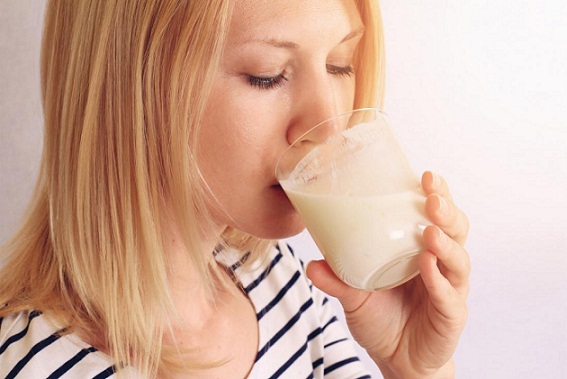A Guide to Fermented Foods
Fermented foods are good for your internal body system for a variety of reasons. These foods are teeming with good bacteria that help maintain your gut balance and gut health. They aid in digestion and contribute towards overall health.
In fact, there are a number of fitness diets and food trends, such as the Paleo diet which include fermented foods to promote faster results. Here is everything you need to know about fermented foods and how to include them in your diet without compromising on taste and flavor.
What are Fermented Foods?
Some of the most common fermented foods include yogurt, sauerkraut, kimchi, beer, and cheese. Fermented foods were the original antibiotics that have been around for thousands of years.
These foods are rich in enzymes, vitamins, minerals and a particularly helpful bacteria species known as Lactobacilli, which make them ideal for health and longevity.
Fermented foods are essentially natural foods like cabbage, grains, or dairy products which have undergone a chemical process of fermentation involving active bacteria cultures.
They have been long known for their healing properties and are a staple in many global diets, including the Bulgarian, Japanese, and Turkish diets.
Why Should You Eat Fermented Foods?
There are a number of benefits to this latest food trend, and the best fermented foods can have positive impacts all over your body.
Immune System
70 percent of your body’s immune system is located in your gut and probiotics play a crucial role in developing and operating the mucosal immune system in your digestive tract.
Nutrients
Most fermented foods are outstanding sources of nutrients and minerals. For instance, cheese curd is an excellent source which prevents arterial plaque buildup.
Microflora
Fermented, raw, and cultured foods help in establishing the right balance of microflora in your gut.
Detoxification
These are some of the best chelates available. Probiotics present in fermented foods are capable of drawing a large amount of heavy metals and toxins out from your body.
Best Fermented Foods
All fermented foods are not created equally, even though they have a wealth of goodness and probiotics in them.
There are some fermented foods which are far superior to others and the type of food you choose will make all the difference. Here is a quick list of some fermented foods which you should really consider adding to your diet.
Kimchi
This is a Korean dish where cabbage is fermented and is very similar to Sauerkraut. It is incredibly spicy and great for your gut. Look for this product in the refrigerated section near other pickles and Asian food.
It does not smell great, which is fairly common for many types of fermented foods, but it is a fantastic and flavorful garnish, or can be eaten as a snack on its own.
Sauerkraut
Sauerkraut is more than your hot dog topping. This incredible fermented food is made from just cabbage and salt. It delivers a healthy dose of fiber and probiotics. You can easily make your own sauerkraut and store it for a few days. The store bought variety will have better probiotic strains.
Kombucha
This is a tangy, effervescent tea which is rich in friendly bacteria and yeast. It is typically made of green or black tea.
The drink is often flavored with fruits and herbs and is commonly found in natural foods stores and many mainstream grocery stores. A tiny amount of alcohol is produced during the fermentation process. If you find that you really love kombucha and also love a good time, you can find brands that offer more alcoholic types of kombucha so you can wind down with a nice drink and improve your gut health all at the same time.
Kefir
Kefir is a fermented milk drink which is full of calcium and probiotics. Its taste is similar to yogurt and just like it helps to break down lactose. Kefir is delicious in smoothies and is easier to digest for people with lactose intolerance.
Tempeh
Tempeh is similar to tofu because it is made from plant-based soy. However, unlike tofu, tempeh is naturally fermented. It has a nuttier flavor profile and a firmer texture than tofu. It is a complete source of vegetarian protein with all the essential amino acids and a good source of probiotics. It’s a great protein replacement if you are vegetarian or vegan.
Miso
Miso adds a nice umami flavor to dishes. It is a fermented paste made from soybeans, rice and barley. It is generally found in soups and a little paste goes a long way. This is good because miso is packed with sodium. You can also add it to your salad dressings and marinade for a healthier gut.
Yogurt
All yogurts contain probiotics and are great fermented foods. They are essentially made from fermenting milk. However, they contain the good bacteria lactobacillus acidophilus which helps in breaking down lactase. Make sure you take baby steps in including this food to your diet to allow your body and gut to accustom to it.
Miscellaneous
There are a variety of other fermented foods which you can try such as raw apple cider vinegar, natto, raw cultured butter, and beet kvass among others. Make sure you drink the murky, whitish fluids at the bottom of apple cider vinegar because most probiotics are found here.
How to Ferment At Home?
There are two main ways of fermenting a food – culturing or wild fermentation. Wild fermentations have no way of knowing the bacteria or yeast present in the foods.
The process is vulnerable to accumulating every kind of microorganism depending upon the environment they grow in. Airborne bugs are known to contaminate and cause sickness in most wild fermented foods.
This can be a problem to people who already have a weak immune system. Around 80% of American people have harmful bacteria overgrowth, and they don’t even know about it. One of the most common bacterial infections is candidiasis.
Unknowingly, you may be risking the integrity of your gut by fusing plain salt brine, whey or kombucha to ferment foods.
Culturing on the other hand is the ideal fermentation process which involves using certain strains of bacteria. Always make sure that you use high-quality starter culture or kefir. Your culture should contain specific strains of beneficial bacteria and yeast. There are certain probiotic brands that list the kind of strains present in their culture.
Make sure you look for foods with added mineral blends to give you the extra health kick. You can add a pinch of trace minerals when fermenting at home.
Humic and fulvic acid or raw sea salt are a great addition to fermented foods. Probiotics love minerals to gain their nourishment. This will ensure even and quick fermentation.
Final Thoughts
Getting started with fermented foods does not have to be a time consuming or difficult affair. It is best to start in small quantities if you get put off by the pungent taste of some fermented foods. You can also choose certain supplements to acquire similar health benefits.





One Comment